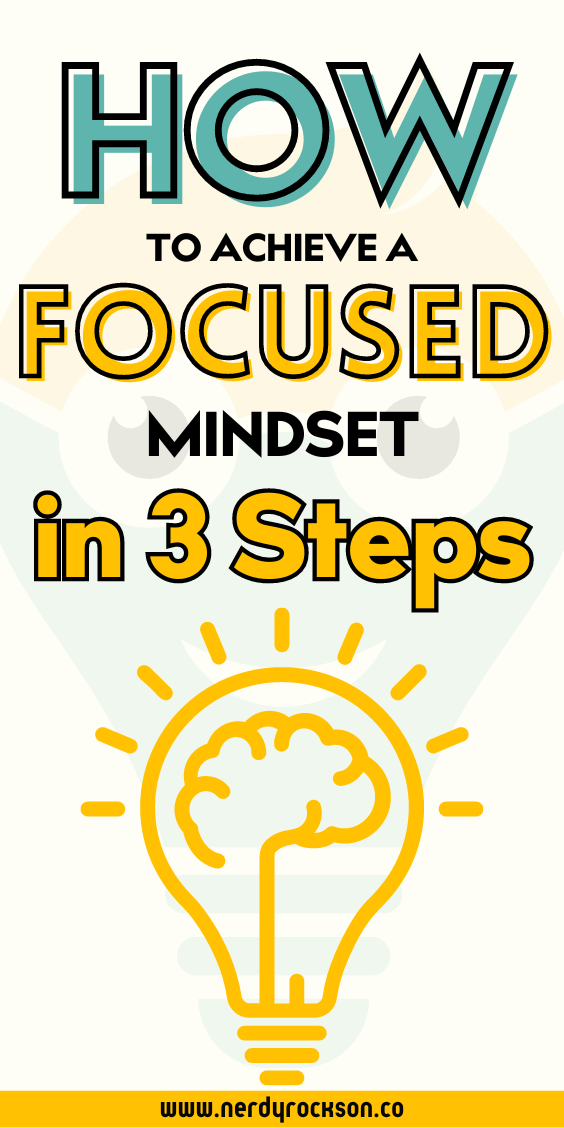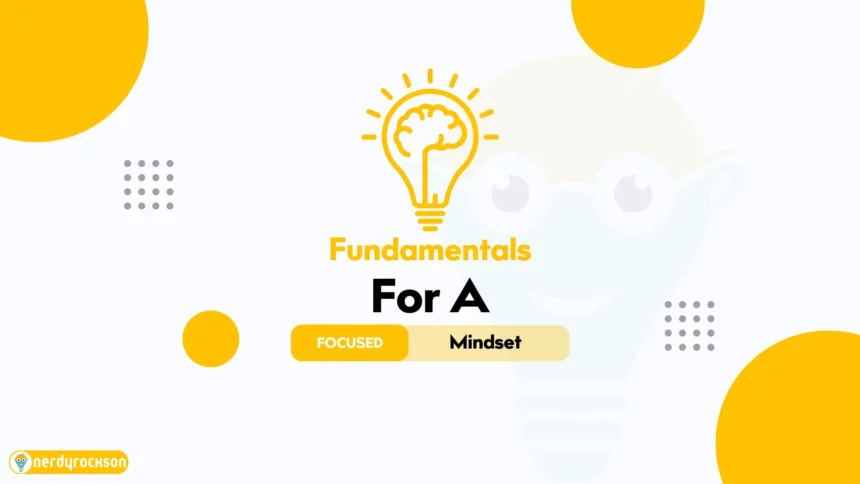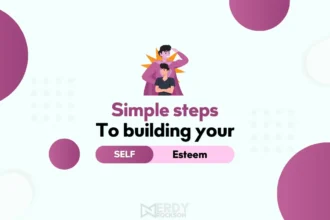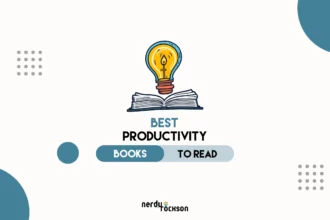Can you imagine navigating life without a solid plan or a clear path to follow? It seems daunting. Well, the journey to achieving one’s potential is no different. This is precisely where the power of these fundamentals for a focused mindset comes into play. With the right mindset, you bolster your ability to overcome challenges, seize opportunities, and ultimately reach your potential.
The three key fundamentals that aid in establishing a focused mindset – mindfulness, goal setting, and self-discipline might seem simple at first glance, but their impact can be transformative. Let’s consider mindfulness, for instance. It’s about being present — wholly wrapped up in the moment, not lost in the past or anxious about the future. Mindfulness enables you to understand your thoughts, setting the foundation for a focused mind.
Next, imagine trying to hit a target with your eyes closed. Tricky, isn’t it? That’s where goal setting plays its part. Goals serve as a roadmap, guiding you in the right direction and providing a tangible measure of progress. They help you to focus your efforts on what’s important rather than getting caught up in busy work.
Last but not least, self-discipline. It’s the critical bridge between goals and accomplishment. Even with clear goals and mindfulness, without self-discipline, you’re likely to be swayed off course. Self-discipline helps you resist distractions and stay focused on your path, fuelling your journey towards achieving your full potential.
By understanding and incorporating these three fundamentals into your life, you can foster a concentrated mindset that drives you towards your ambitions and boosts your overall productivity and well-being.
Understanding the Mind
Have you ever wondered about the colossal power of your mind? Understanding how it works can feel like grappling with a great enigma, but let’s clarify this extraordinary apparatus inside our skulls together. Fundamentally, our brain is a network of billions of neurons, interacting through electrical and chemical signals – a magnificently complex structure that gives rise to everything we perceive, think, feel, or do.
Now, where do focus and concentration fit in this picture? They play quite the starring role in our cognitive functions. Imagine your brain as a grand orchestra, with countless musicians (neurons), each playing their tunes (signals). Focus and concentration act like the conductor who ensures that at any given moment, only the relevant musicians play harmoniously while others remain silent. Without a conductor, the result would be chaos – just as our thoughts often become without focus or concentration.
Focus is the ability to direct your attention towards a specific task or thought and ignore distractions. On the other hand, concentration is the capacity to maintain this attention for extended periods. Together, they enable effective cognitive processing, allowing you to think clearly and sharply, solve problems effectively, learn efficiently, and remember accurately.
Grasping this basic understanding of how our mind operates, highlighting the pivotal role of focus and concentration, lays a meaningful foundation for what’s to come.
Fundamentals for a Focused Mindset
Are you ready to delve into the three fundamentals that can guide you towards a more focused mindset?
Mindfulness
But what is mindfulness? Simply put, mindfulness represents an acute awareness of the present moment; it’s all about embodying a mental state of focus and calm centred around the ‘here and now’. By being fully present, you can optimise your attention and concentration, foster clarity and reduce stress – all essential for a laser-sharp mindset.
Your mind behaves like an untamed horse at times. With mindfulness, you have the reins to guide this mental equine appropriately. The regular practice of mindfulness techniques primes your mind to keep distractions at bay and encourages better focus on your tasks, promoting a more performance-driven mindset.
So how can you cultivate mindfulness, I hear you ask? Meditation stands out as a proven technique for this. Whether it’s a classic sitting meditation practice or a more modern mindful walking exercise, these techniques encourage conscious presence in your activities. Particularly, sitting meditation, where you focus solely on your breath, is one of the most effective ways to keep a tab on wandering thoughts and bring your mind back to the centre.
One can also include mindful exercises into one’s daily routine, such as mindful eating, listening, or even brushing teeth! The goal is to engage all your senses during the activity, creating a heightened sense of presence and focus. Remember, consistent practice is key when it comes to mindfulness training.
Goal Setting
Have you ever set your sights on something? Then, you realise that when you have something to aim for, your focus and resolve strengthen. That a goal serves as a beacon to guide you and a source of motivation, constantly urging you to press forward.
Indeed, that’s the power of goal setting – it is an essential tool for maintaining your focus and driving your motivation. A clear, achievable goal leads you through the fog of uncertainty, directly determining where your energy and attention should be spent. This clarity reduces distractions and prevents wasted efforts, helping you become more efficient and effective.
So, how can you set practical goals that will keep you motivated, intent, and committed? First, you want your goals to be S.M.A.R.T: Specific, Measurable, Achievable, Relevant, and Time-bound. Rather than setting abstract goals like ‘I want to be happy’, try for more tangible targets such as ‘I will meditate for 15 minutes every day for the next month’. This makes it easier to track your progress and celebrate your victories, however small.
Once you’ve set your goals, staying committed can be a challenge. Here’s a strategy to tackle it: Break your larger goal into smaller, achievable tasks. These small steps may seem insignificant, but collectively, they’ll lead you to your ultimate goal. Each small victory will feed your confidence and strengthen your resolve.
Lastly, make a habit of reminding yourself of your ‘why’. Why did you set this goal in the first place? Recalling your core reasons can rekindle the flame whenever your motivation wavers and help you stay steadfast on your path.
Remember, goal setting is not a one-time endeavour. It is a dynamic process that requires regular reviewing, adjusting, and even, sometimes, starting afresh. Yet, its power in creating a focused mindset is beyond question. So, gear up, set your goals, and take charge of your mental focus.
Self-Discipline
Are you familiar with the term ‘self-discipline‘? At its core, self-discipline involves exerting control over your actions and reactions. It’s a learned skill that can dramatically strengthen your focused mindset. But how can you harness this form of discipline to your advantage?
Self-discipline acts as a cornerstone for focused thinking. It determines your capacity to focus on the task, keeping distractions at bay and maintaining an unwavering commitment towards your goals. By consistently employing self-discipline, you’ll find that your general focus sharpens, paving the way for more efficient, fruitful work or study periods.
So, you might be wondering, how can I develop self-discipline? First, consider creating routines. These could be morning routines, evening routines, or routines that revolve around specific tasks. No matter how insignificant they seem, routines provide a structure that can guide your day, ensuring you stay on course and avoid potential distractions.
Speaking of distractions, these are your biggest adversaries in the quest for self-discipline. You must identify what causes your attention to wander, be it social media, a noisy environment, or even personal worries. Once these distractions are identified, you can work towards eliminating them. This may involve setting aside specific times to engage with these distractions or removing them from your environment entirely.
In some cases, self-discipline might call for a bit of tough love. But remember, with each act of discipline, you are taking a step towards a more focused mindset. And the sense of accomplishment and control you’ll experience will be worth it.


Connection of the Fundamentals
Have you ever wondered how mindfulness, goal setting, and self-discipline could be linked? Understanding this interconnection is key to establishing a focused mindset. Essentially, these three elements work collectively, each providing the necessary backbone to the other, working together as an intricate mechanism contributing to mental disposition and focus.
Firstly, let’s unravel how mindfulness directly feeds into goal setting. Through being mindful, you heighten your sense of self-awareness. You become more attuned to your present state, aspirations, and inhibitions. This very clarity and understanding of oneself is pivotal in setting realistic, achievable targets. Thus, mindfulness becomes an indispensable tool, aiding in practical goal setting.
Now, let’s consider what role self-discipline plays in this equation. Do you believe that you could achieve set goals without a certain level of determination and discipline? It’s highly unlikely. Here’s where the role of self-discipline comes into play. Self-discipline facilitates the execution of planned goals, turning them from a mere conceptual state into reality. It acts as the bridge between your ambitions and their fruition.
But how does this come back to mindfulness? This is where the fascinating interconnectedness of these fundamentals shines through. By maintaining a solid level of self-discipline, you inherently reinforce and cultivate mindfulness. Staying disciplined requires constant, vigilant self-monitoring and evaluation – an act of mindfulness in itself.
These concepts interweave into a robust slate, each reinforcing and amplifying the other. Mastering one enhances the others, creating a compounded level of focus greater than the sum of its parts. Together, they form a cyclic system, working in unison to create a wholly centred and focused mindset.
Overcoming Obstacles
It’s true. Even with knowledge of the fundamentals for a focused mindset, you may encounter hindrances along the journey – common obstacles such as distractions, stress, and a lack of motivation. But remember, these obstacles aren’t necessarily bad; they can be viewed as opportunities for growth and resilience building if you handle them effectively.
Distractions are a prominent issue for many. In the modern world, we are often bombarded with information and stimuli, making it difficult to maintain a focused mind. Rather than letting these distractions control you, why not reclaim your power? Design your environment to reduce distractions. This could involve decluttering your workspace, turning off unnecessary notifications on your devices, or setting specific times for activities like social media browsing and email checking.
Next, stress. It’s a part of life, but it doesn’t have to overwhelm you. Introduce stress-reducing techniques into your routine, such as mindfulness exercises, physical activity, and spending time outdoors. Furthermore, don’t forget to nourish your body with balanced, nutritious meals and ensure you are getting enough sleep. These methods are not just good for your physical health but also your mental well-being.
Finally, the omnipresent obstacle – the lack of motivation. Motivation will not always be present, and that’s perfectly normal. The key is to find strategies that work for you. One powerful one is to connect your tasks to your broader goals, making every endeavour more meaningful. Small rewards or positive reinforcements are another popular method. Remember, the ultimate goal is not to be relentlessly driven 24/7 but to foster a healthy and sustainable mindset towards your work and intentions.
So, while these obstacles might seem like a mountain, with the right strategies and a bit of determination, they will no longer be stumbling blocks but stepping stones to a more focused mindset.
Conclusion
So, there you have it, the approachable trinity of fundamentals to achieve an attentive and focused mindset: Mindfulness, Goal Setting, and Self-Discipline. Have they shone a light on some shadowy corners of your thought processes? Are you ready to form strategies, allocate time, and muster the required discipline to rewire your brain towards greater focus?
While it may sound slightly daunting at this juncture, remember that you’re not alone on this journey. Millions have walked this path before you, and many more will follow. Understanding these concepts is just the first step on the road unending. The ultimate aim is steady progress, not overnight success.
What’s important is not the speed at which you adapt these principles but the consistency with which you do so. Small, incremental changes can lead to monumental shifts over time. So start small, perhaps with a few minutes of mindfulness practice the first morning, adding goal-setting exercises by week two. Gradually usher in the principle of self-discipline, and you’ll soon witness a profound transformation.
Remember, the power to cultivate a focused mindset rests with you and you alone. It is never too late to embark on this journey of self-discovery and cognitive improvement. As the saying goes, the best time to plant a tree was twenty years ago. The second best time is now. As such, the journey toward a fruitful and focused mind starts with this single step you’re about to take.
Additional Resources
Ever eager to embark on a journey to gain deeper insights into the fundamentals of a focused mindset? Here’s a compilation of thoroughly curated books, websites, and resources just for you, designed to arm you with expansive knowledge and practical tools for successful mindset development.
Books
- “The Power of Now“ by Eckhart Tolle – An enlightening philosophical read that guides you towards achieving mindfulness, living in the present moment, and thereby gaining mental clarity.
- “Atomic Habits“ by James Clear – This book, brimming with actionable advice on building constructive habits, achieving your goals, and developing discipline, is an essential read.
- “Mindset: The New Psychology of Success“ by Carol S. Dweck – Dive into the world of growth mindset with this insightful and transformative piece.
Websites
- Mindful.org – A reliable platform hosting various articles, podcasts, and mindful practices to integrate mindfulness into your daily life.
- Goalcast.com – A digital cohort for setting and achieving goals, providing motivating stories, guidance, and tools to carve your path towards success.
- Zenhabits.net – An online sanctuary designed to assist you in developing self-discipline while promoting simplicity and mindfulness.
Other Resources
- Mindfulness App– A mobile application that offers guided practices to enhance mindfulness and meditation skills.
- Todoist – Task management software to help you stay focused, achieve your goals, and foster self-discipline.
- Insight Timer – A free app offering expansive resources in guided meditations, talks, and courses centred around mindfulness.
Delve into these exceptional resources to deepen your understanding, enhance your skills, and walk the path towards a focused mindset. Remember, it’s not an overnight transformation but a game of patience, consistency, and continuous learning, and you are up for it. Good luck on your journey!









